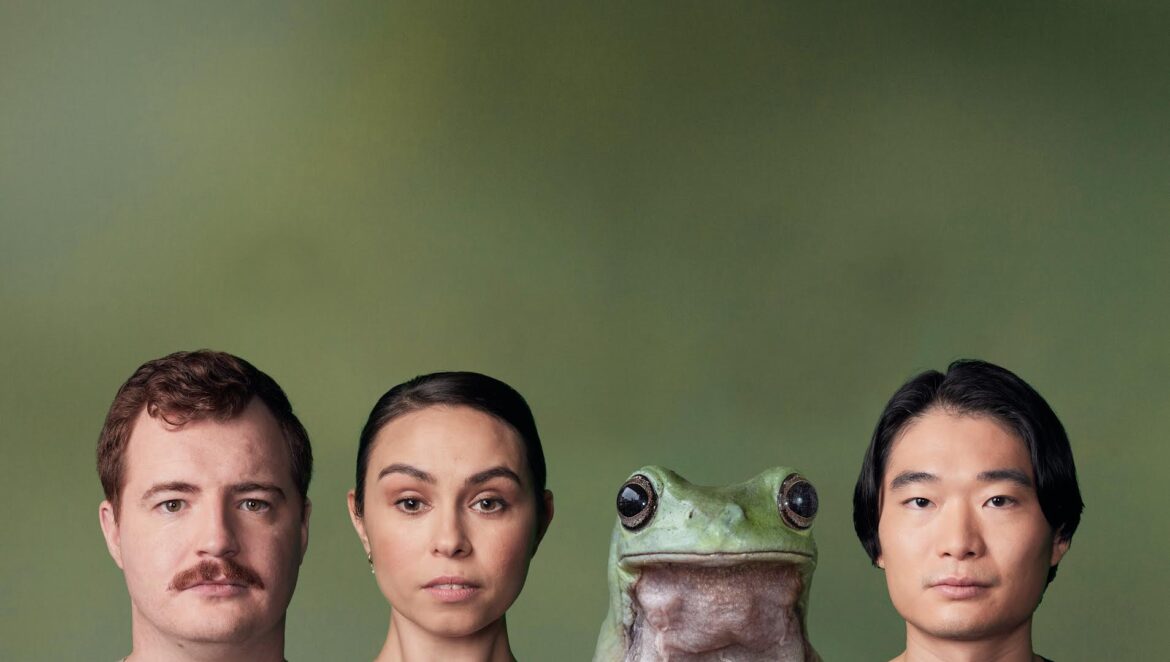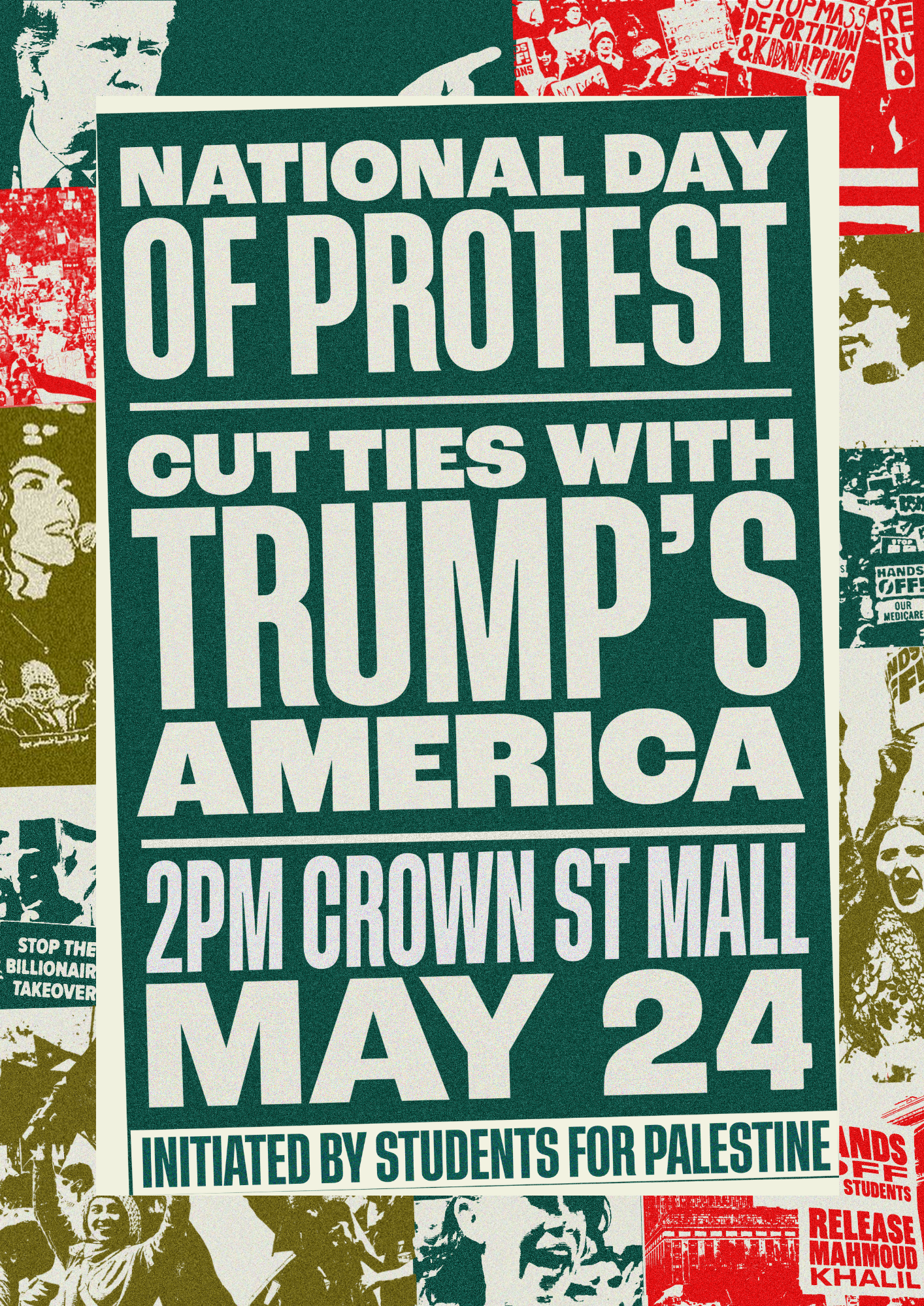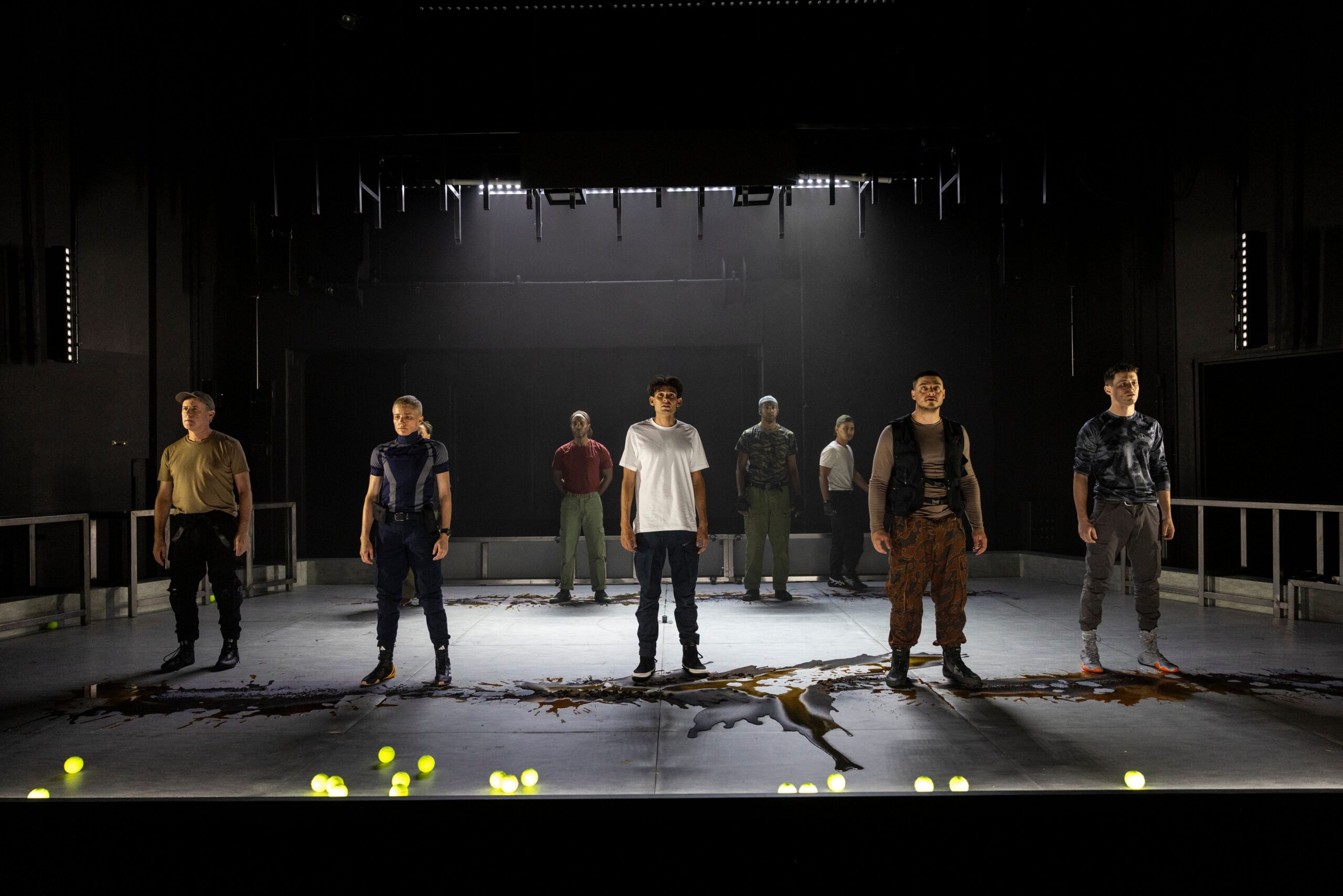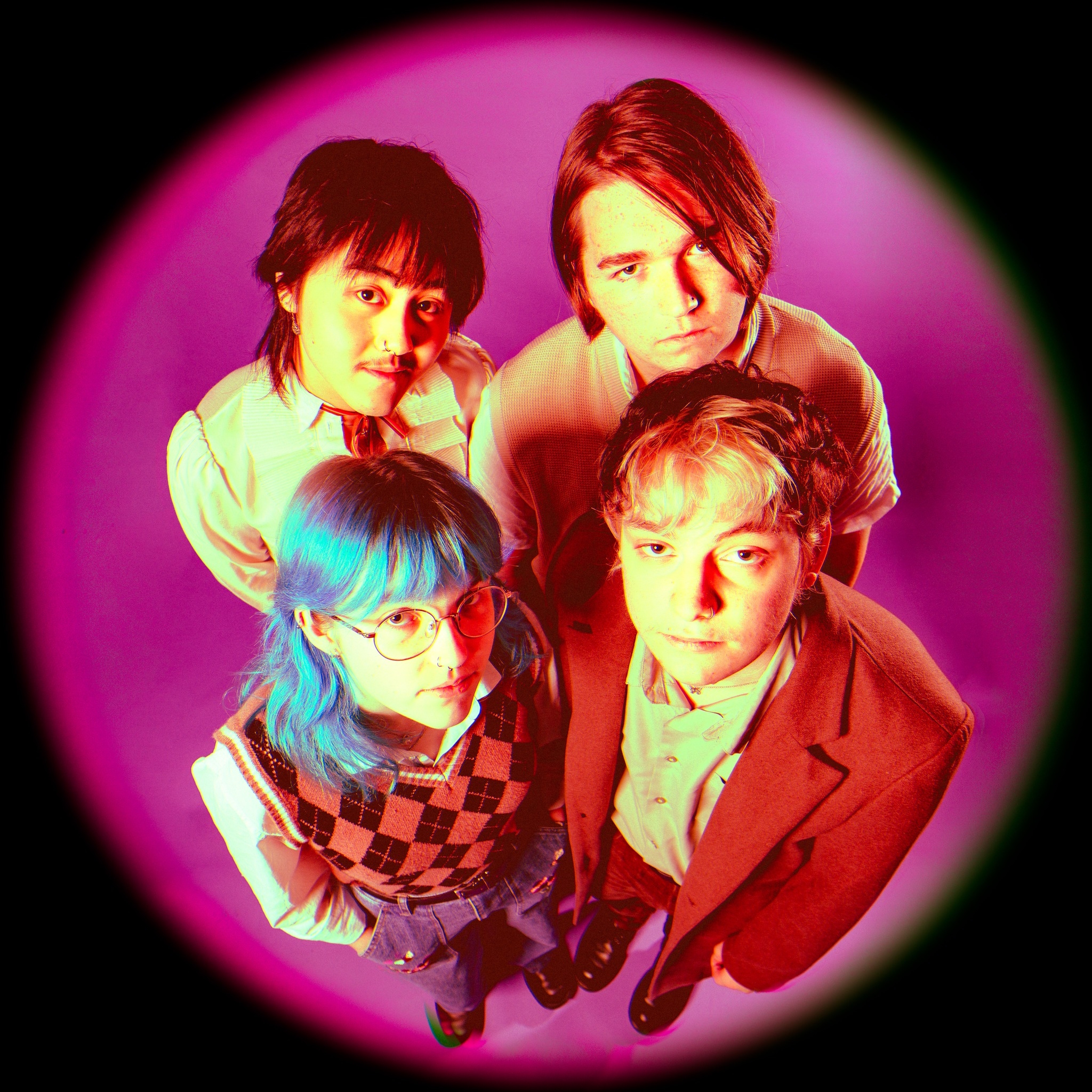After a sold-out premiere at Sydney’s Belvoir St Theatre, Scenes from the Climate Era is making waves once again – this time at our very own Illawarra Performing Arts Centre. The acclaimed work by playwright David Finnigan is anything but conventional: a fast-moving show of over fifty mini-acts that dive headfirst into the chaos, comedy, and quiet devastation of life in a climate-altered world. From frog calls echoing into extinction to makeshift families afloat in rising seas, the production paints an unflinching portrait of our not-so-distant future. Ahead of its Illawarra season, we sat down with cast member Violette Ayad to talk about their experience bringing this ambitious show to life, the moments that linger after the curtain falls, and what it means to perform theatre in our context.
SERENA: Could you outline what the show is about and what to expect?
VIOLETTE: It’s called ‘Scenes from the Climate Era’, and it’s all in the title. It’s a ton of different short scenes about what the playwright likes to call the ‘climate era.’ So, at some point in the play we talk about the medieval period and the Renaissance and that perhaps we are living in the Climate Era: a period of time that’s gonna be hundreds and thousands of years, defined by our relationships with the world and how that is going to affect us.
So, what’s really beautiful about the play is that the climate is going to affect people on the planet in a myriad of ways. What’s it going to be like for people 15 years from now? Or, what was it like for a scientist 40 years ago? Or, what would it be like for two parents deciding whether or not they want to have a child next year? So, we jump around time and we jump around different humans and how this whole thing is going to affect our lives. Which sounds like it’s going to be super doom and gloom but it’s not. There’s a lot of comedy and hope and absurdism and a lot of imagining how we adapt to all these things that might be happening. So, it’s really imaginative and interesting, and – I actually saw this production about 2 years ago, so I have a feeling of what it was like as an audience member as well. It allows you to sit there and imagine all of the possibilities of what is going to happen moving forward, and just reflect and process this thing that we’re all going through together.
S: It’s really difficult to think about what kind of era we are living in. I’ve always thought about it in a technological lens but, I guess, the one thing that is affecting the entire world is climate change.
V: There’s a lot of writing at the moment trying to define what we’re going through. The last one that I worked on spoke about ‘The Age of Oil,’ – you know, ‘The Golden Age,’ ‘The Bronze Age,’ ‘The Steel Age.’ We’re mostly trying to define what we’re going through as we’re moving through it. We don’t really know how to talk about it and how to write about it until it’s over and until we can reflect on it. And, so what I think is really cool about David’s work is that he’s trying while we’re in the middle of it. And, there’s a scene with climate scientists from the 80s talking about what they know and what they don’t know and it’s so interesting because you in the audience are now decades ahead – you can answer the questions that they couldn’t answer at that time. And then there’s scenes from today that might seem really familiar and then there’s imagined scenes that might seem really scary. And there’s obviously climate shocks, and what’s going to happen with bushfires, and flooding, and all these natural climate shocks.
But then there are scenes from people in the future who aren’t even born yet who are still going to have to wake up and make breakfast for their kids. The world doesn’t end, it just changes.
S: How do you navigate the many scenes and roles?
This is a very unique rehearsal period because we’re doing all of this in one week. So, the first team who got to do this in Belvoir, two years ago, would’ve had a standard rehearsal period where they would’ve had the script and pulled it apart and tried on different things. ‘What if I’m here?’ ‘What if I’m there?’ ‘What’s the stage going to look like?’ ‘How are we going to block this space and how are we going to create these scenes?’ They’ve done all of that work for us. And so we’re coming to it to remount their production of it but then obviously breathing new life into our characters – for the many characters we have to play. So, it’s one week, which is crazy. It’s a very short rehearsal period, which provides very unique challenges. We’ve all tried to come to it with at least the text in our heads. So, we’ve got the text in our heads and – to be honest, in a way, the fact that it’s a lot of different scenes simplifies the process because you’re not really having to track a single character and their unique journey and hitting certain milestones so that you get a sense of catharsis or reach an emotional moment. You’re actually just learning this 2-minute scene, and this 3-minute scene, and this 4-minute scene. So, in each moment you’ve got a couple of things that characterise you.
But it’s also so beautifully written. David wrote it in such a way that you’re not having to step out of yourself to be this completely different character. It feels more like, ‘Here’s a bunch of actors on stage performing different scenes for you.’ And of course, you’re playing all of these different characters but I’ve thought about it a lot less as playing these different characters and more about serving each scene. And of course, in that process, a different characterisation comes out. But, yeah, there are pros and cons. There are moments where you go, ‘Oh, yeah, I’ve totally forgotten about that scene,’ and it’s this completely different scene that you haven’t thought about in like two days. But, it’s not have the pressure of following a big character arc of the one or two and a half hour play.
S: Would you say that the meaning behind the scene is more important than the characters you play?
V: Yeah, kind of. Maybe. I put it like the character comes from the circumstance of the argument being made. So, there’s a set of circumstances you’re placed in, for example, you’re in a focus group in Mudgee (which is one of my circumstances). And, you’re a teacher making this argument to the person asking the questions. And, already, you really have enough there to build a character if you focus on ‘where I am’ and ‘what I’m saying.’ It’s a lot less specific like ‘this guy has a limp,’ you know, it doesn’t have to be that.
S: Do you find that similar to improvisation or not so much?
V: Well, thankfully, we don’t improvise too much, because I don’t think the five of us combined could have as interesting ideas as David has already written. But it’s definitely got a sense of play, like you’re playing with your other cast mates. And, particularly in big scenes where we’re all together. There’s a dinner scene where we’re all just chatting about the world and their particular view on it, and there is a real sense of playfulness and lightness, and it’s funny.
I think this is the sort of thing people need to hear because I think coming into a show like this there could be some hesitancy of like, ‘Oh god, I know we’re all doomed. I don’t want to hear about it.’ But actually, there’s a lot of lightness, there’s a lot of humour. In any place where there are humans in absurd situations, there’s going to be humour. So yeah, there are definitely playful qualities like, ‘here I’m going to set three chairs, and now they’re somewhere else.’ I think that’s what you’re getting at with the improvisational qualities. It’s not like we’re sitting in a fully set-out living room or anything.
S: Absolutely, I think that playfulness is needed, and that comedy you mentioned earlier helps the audience view these issues a little bit smaller than they are.
V: Absolutely, and I think comedy is humanity, right? There’s always a humanity to it and I just don’t know – it’s not like we’re trying to package this into comedy so that it’s easier to swallow. It’s just that where there are people and there’s a situation, comedy tends to ensue and people are going to lean towards humour in times of crisis as well. Yeah, there is a lot of dark comedy, but there’s a lot of light comedy as well. And it gives the audience a chance to sit back and reflect on it. I think the most interesting thing about finding the humour in these characters is that it gives you this sense of universality. This character might be from 40 years ago or 200 years in the future but humans are the same. And we get that through, ‘Oh, that’s the same thing that I do.’
S: What was your first reaction when seeing this show?
V: What I first responded to was this notion that climate shocks are not the end of the world. Which does not mean that they’re not very serious, but it means that things are going to change in ways that cannot be imagined yet. And that’s not to mean that there isn’t going to be immense suffering across the world, and we need to take action and take responsibility for it. But it doesn’t stop. It’ll be another adaptation and another adaptation and another. And so the future sort of felt like it was all going to blow up, or it was all going to burn down, or it’s all going to flood. Those things will happen, and then what? What happens after?
So, I’ve always thought, ‘Oh yeah, the planet will go on, it’ll just be without human beings because we’ll have wiped ourselves all out,’ that neo-apocalyptic thought that I had in my head. And now I’m thinking, ‘I don’t know if that’s actually it.’ It might definitely be the reality for some people – we might need to take a global-minded action around that. But then what? What happens after? Do some people make it? Do we keep going? And how far away is that, as well? Is it going to be generations and generations from now?
I think my first reaction was that it really opened up my sense of what the future looks like in and after the Climate Era. And I went, ‘Wow, I never thought of it like that. I never thought that there was an “and then what?” after these things.’ Which I don’t think takes away from the seriousness – no one’s denying that – but, then what? What happens afterwards?
S: You’re making me have an existential crisis myself.
V: And, that’s the reflection it gives you – a big scope, you know. It takes you back in time and then so far forward in time that it zooms you out of the current conversation. And, I think that’s what’s brilliant about it – about David’s writing.
S: Is there anything that has changed your perspective in your daily life? How you look at things and interact with people?
V: Yeah, it’s the system – in the play they talk about the stages you go through with processing climate change and so it goes: denial, solutions, despair and then hope. So, denial is going, ‘it’s not happening.’ Solutions is going, ‘it’s happening so let’s recycle.’ Despair is, ‘recycling isn’t going to do enough to stop what’s coming for us.’ And, then hope is what I was saying before, of, ‘okay, maybe there are some good things I can cling to.’ So, it changes a bit everyday, but now when I’m thinking about it, I think about it in terms of where I’m at in that cycle. In that loop, that goes around and around and around – which is also part of the play.
But, it’s really great the impact that it’s had with the production at Belvoir Street. Just this morning we’ve received a presentation from the Head of Production here at Belvoir about how they’ve created this show and the sustainability they’ve put into creating this show. Unfortunately, theatre is not always a sustainable practice, and so they’ve put a lot of effort in, here at Belvoir, into changing that for this production. And then some of those changes have had effects on other productions which have kept those changes to operate. For example, we’re in a contemporary show so there’s absolutely no fast fashion. Everything is either second-hand or from the stock from the Belvoir store. And the set production, for the most part – like 99% of it is reused material or stuff that was just going to go to the bin. So I think that’s really nice to see that the content of the show has reflected back into the making of the show.
S: That’s wonderful to hear that it’s having an impact. It’s a great thing you’re doing here.
V: I think so. Once in a while you get to do a show that you feel like the message is really important and interesting and that will really engage people on an important topic – but in a fun way. Genuinely, I mean it, it’s so fun. It’s so funny and interesting. Yeah, I don’t really want to apologise for it but it’s certainly not preachy, it’s provocative, and hopefully it’ll start some really interesting conversations in regional areas. That’s what I’m most excited about. I’m excited about taking this production and listening to what people in Wodonga or in Wollongong have to say about it that’s different from the people living in the city in Sydney 2 years ago. That’s in the play as well. There are so many characters that bring their perspective into it and have a different take from someone who lives in an urban setting.




